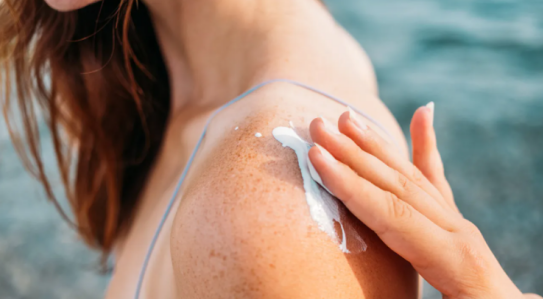물리적 자외선 차단제, 흔히 미네랄 자외선 차단제라고 불리는 이 제품은 피부에 물리적 장벽을 형성하여 자외선으로부터 피부를 보호하는 방식으로 작용합니다.햇살.
이 자외선 차단제들은 자외선을 피부에서 반사시켜 광범위한 차단 효과를 제공합니다. 또한, 색소침착과 주름을 포함한 UVA 관련 피부 손상을 예방하는 데에도 도움을 줍니다.
미네랄 자외선 차단제는 창문을 통해 들어오는 UVA 광선도 차단해 줍니다. UVA 광선은 색소 침착과 콜라겐 분해를 유발할 수 있습니다. 따라서 외출 계획이 없더라도 매일 자외선 차단제를 바르는 것이 중요합니다.
대부분의 미네랄 자외선 차단제는 미국 식품의약국(FDA)에서 안전하고 효과적이라고 인정한 두 가지 성분인 산화아연과 산화티타늄으로 만들어집니다.
미세한 산화아연이나 티타늄 입자로 된 자외선 차단제, 또는 매우 작은 입자로 된 자외선 차단제는 다음과 같은 방식으로 작용합니다.화학적 자외선 차단제자외선을 흡수함으로써.
피부암재단 부회장이자 피부과 전문의인 엘리자베스 헤일 박사는 "산화아연 자외선 차단제는 여드름을 비롯한 민감한 피부를 가진 사람들에게 자주 추천되며, 어린이에게 사용해도 될 만큼 순합니다."라고 말합니다.
"또한, 이 제품들은 가장 광범위한 자외선 차단 효과(UVA 및 UVB 광선 모두 차단)를 제공하며, 얼굴과 목에 매일 자외선 차단제를 바르는 사람들에게 널리 추천됩니다. 주름, 기미, 광노화 등 연중 내내 UVA로 인한 손상을 예방하는 데 효과적이기 때문입니다."라고 그녀는 말합니다.
미네랄 선크림은 분명 여러 장점이 있지만, 한 가지 단점이 있습니다. 바로 가루 날림이 심하고, 잘 펴 발라지지 않으며, 가장 눈에 띄는 단점은 피부에 하얗게 뜨는 백탁 현상을 남긴다는 것입니다. 특히 피부톤이 어두운 사람일수록 이 백탁 현상이 더욱 두드러져 보일 수 있습니다.하지만 유니프로마의 경우에는물리적 자외선 차단 필터당신이 이겼습니다'그런 걱정은 하지 않으셔도 됩니다. 저희 제품은 균일한 입자 크기 분포와 높은 투명도를 자랑하여 귀사의 제품에 탁월한 청색 발색과 높은 SPF 지수를 제공합니다.
게시 시간: 2022년 4월 5일
